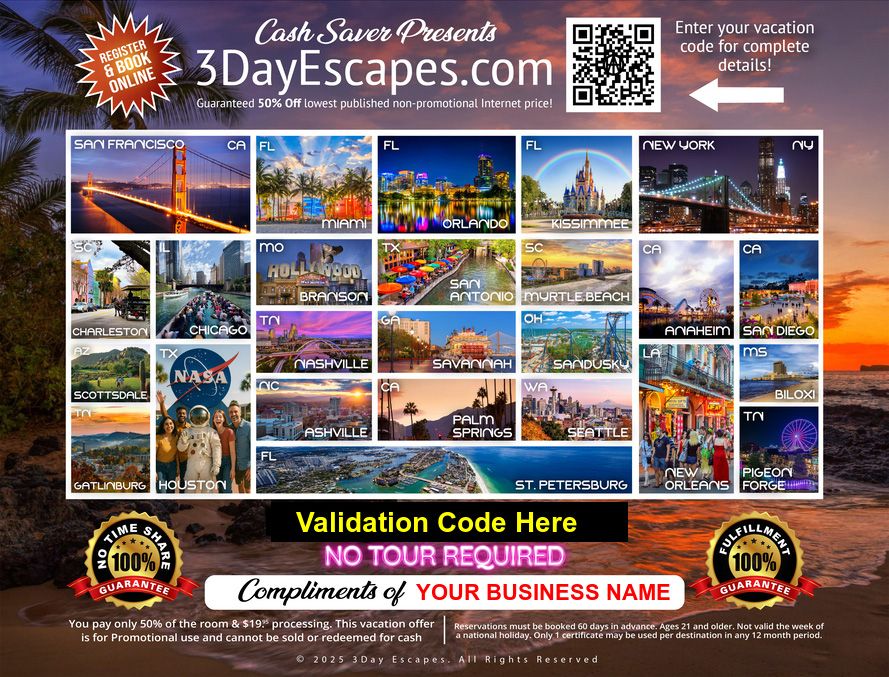a

Digital Incentives: Motivating Performance & Driving Results
(Business Opportunity Available)
In every successful organization, people are the most important asset. But even the most talented teams need motivation to perform at their best. One of the most effective ways to inspire effort, encourage loyalty, and shape positive behaviors is through the use of digital incentives. Incentives — whether financial, recognition-based, or experiential — do far more than reward performance. They communicate value, reinforce company culture, and create a sense of shared purpose.
Samples of Our Digital Incentives:
Why Use Incentives?
Using incentives is one of the smartest, fastest ways to supercharge your business with more leads, more sales, and more loyal customers — without slashing your prices or begging for attention.Samples of Our Digital Incentives:
- 3-Day, 2-Night Las Vegas Vacation
- $1,000 in Restaurant Coupons
- $1,000 in Supermarket Coupons
- 3-Day, 2-Night Multi Destination Vacation





